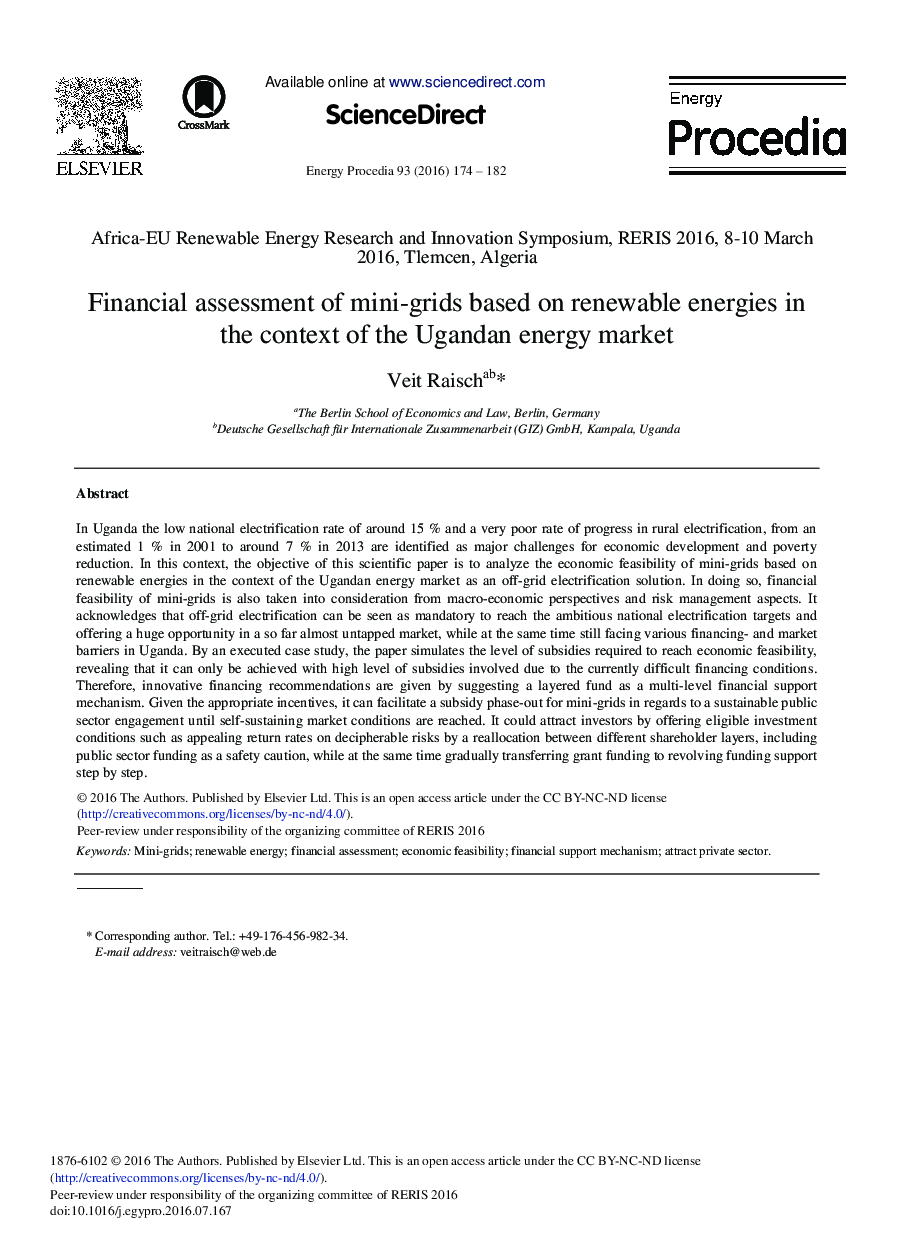| Article ID | Journal | Published Year | Pages | File Type |
|---|---|---|---|---|
| 5447042 | Energy Procedia | 2016 | 9 Pages |
In Uganda the low national electrification rate of around 15% and a very poor rate of progress in rural electrification, from an estimated 1% in 2001 to around 7% in 2013 are identified as major challenges for economic development and poverty reduction. In this context, the objective of this scientific paper is to analyze the economic feasibility of mini-grids based on renewable energies in the context of the Ugandan energy market as an off-grid electrification solution. In doing so, financial feasibility of mini-grids is also taken into consideration from macro-economic perspectives and risk management aspects. It acknowledges that off-grid electrification can be seen as mandatory to reach the ambitious national electrification targets and offering a huge opportunity in a so far almost untapped market, while at the same time still facing various financing- and market barriers in Uganda. By an executed case study, the paper simulates the level of subsidies required to reach economic feasibility, revealing that it can only be achieved with high level of subsidies involved due to the currently difficult financing conditions. Therefore, innovative financing recommendations are given by suggesting a layered fund as a multi-level financial support mechanism. Given the appropriate incentives, it can facilitate a subsidy phase-out for mini-grids in regards to a sustainable public sector engagement until self-sustaining market conditions are reached. It could attract investors by offering eligible investment conditions such as appealing return rates on decipherable risks by a reallocation between different shareholder layers, including public sector funding as a safety caution, while at the same time gradually transferring grant funding to revolving funding support step by step.
